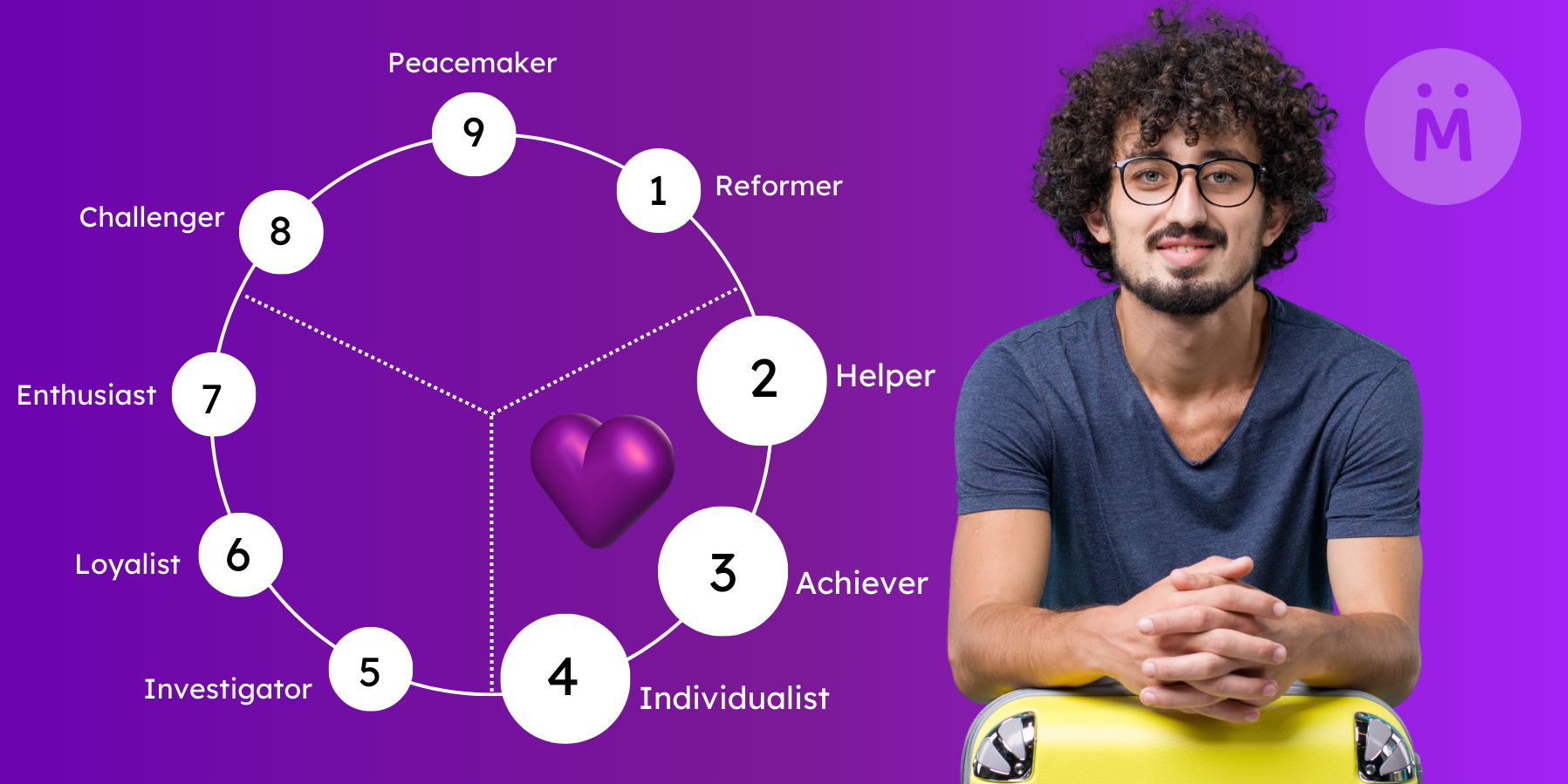Unlocking the Heart-Image Center of the Enneagram
Margo Plater

The Enneagram is a powerful tool for understanding human personality and behavior, and it consists of nine different personality types, each with unique characteristics and traits. In this article, we will delve into the heart center of the Enneagram, exploring the qualities of types 2, 3, and 4. This knowledge can help you gain a better understanding of yourself and those around you. We will begin by giving a brief overview of the other two centers of the Enneagram: the body and the head centers.
Understanding the Enneagram
Before we dive into the heart center, it's essential to grasp the fundamentals of the Enneagram. This psychometrics system categorizes individuals into nine personality types, each driven by a core motivation. These types are further divided into three centers: the Head, the Body, and the Heart. The heart center is home to Types 2, 3, and 4.
Unveiling the Body Center of the Enneagram
The Body Center, as the name suggests, is deeply rooted in the physical realm. It encompasses three personality types: Type Eight, Type Nine, and Type One. These individuals are characterized by their strong connection to their physical bodies and their immediate environment. What sets the Body Center apart from the other two centers are the unique traits and characteristics it encompasses. The individuals within this center share a strong sense of physicality, a desire for control or peace, and an unyielding commitment to their principles.
Understanding the Head Center
The head center, in particular, is associated with thinking, analysis, and perception. The head center, also known as the "thinking center," is one of the three centers in the Enneagram, which is a personality system that categorizes individuals into nine distinct personality types. The head center consists of three Enneagram types, 5, 6, and 7 that share common traits and motivations related to thinking, fear, and anxiety. The head center types are called as such because they tend to overanalyze, ruminate, and engage in cognitive processing as a way of coping with their underlying fears and anxieties. These types can be characterized by an overreliance on thinking and planning, and they may struggle with feelings of anxiety, doubt, or fear. Understanding these three types and their core motivations can be beneficial for self-awareness and personal growth within the framework of the Enneagram.
Understanding the Heart Center
The heart center, also known as the feeling or image center, is one of the core components of the enneagram. It's associated with emotions, identity, and self-esteem. Here's a breakdown of the key elements of the heart center:
The Core Emotions
Love
Love is the primary emotion associated with the heart center. As an individual who falls within this center, you tend to experience love and connection intensely. You often seek approval and validation from others and are driven by a desire to be loved.
Shame
Shame is another fundamental emotion in the heart center. You are highly sensitive to feelings of shame and may go to great lengths to avoid it. This sensitivity can lead to various personality traits and coping mechanisms.
Characteristics of the Heart Center Types
The enneagram categorizes individuals within the heart center into three distinct personality types:
Type Two - The Helper
As a type 2 you are often empathetic, caring, and generous. You strive to be helpful and loved by others. However, you can also be overly self-sacrificing and may struggle with boundary issues.
Type Three - The Achiever
As a type 3 you are ambitious, success-oriented, and image-conscious. You are driven to achieve and excel in your pursuits, seeking validation through your accomplishments.
Type Four - The Individualist
As a type 4 you are deeply in touch with your emotions and often feel unique or different from others. You long for authenticity and may grapple with feelings of melancholy or longing.
How Does the Heart Center Operate?
The heart center operates based on the desire to feel loved and valued. As an individual within this center, you often engage in specific behaviors and thought patterns driven by your core emotions. Let's take a closer look:
Seeking Approval
You may frequently seek approval from others. You go out of your way to be helpful, successful, or unique to gain validation and love.
Fear of Rejection
A fear of rejection is a common theme in you and other individuals within the heart center. This fear can lead to self-doubt, insecurity, and a constant need for reassurance.
Image Consciousness
You and other individuals within this center may be highly conscious of your image and how you are perceived by others. You often project an idealized self-image.
Key Takeaways
The heart center part of the enneagram offers a fascinating glimpse into the emotions, motivations, and behaviors that shape your personality and the personalities of others. By understanding this aspect of the enneagram, you can gain valuable insights into yourself and others, fostering personal growth and more meaningful connections. Embrace the journey of self-discovery, and let the heart center guide you towards a more enriched and authentic life.



